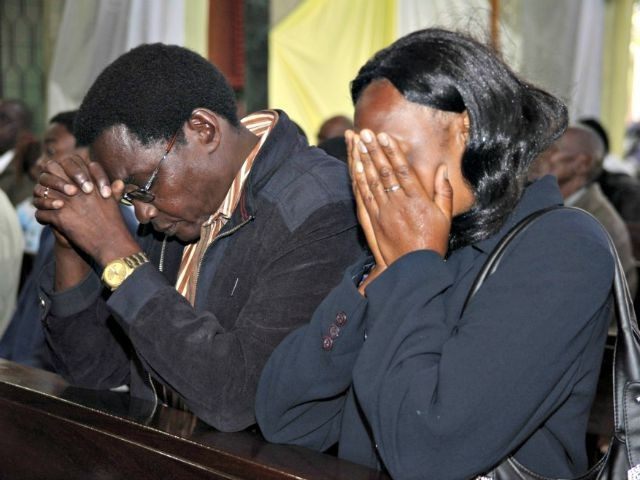A debate is raging among African and Arab theologians regarding how far Christians can go in good conscience to hide their faith and pretend to be Muslims in order to save their lives at the hands of Islamist extremists.
It often happens that during jihadist raids, militants will try to ascertain quickly whether persons they are attacking are Christians or Muslims by asking them questions about Islam or having them recite the Muslim creed in Arabic.
For example, during the 2013 terror attack at the Westgate Mall in Nairobi, Kenya, al Shabaab gunmen paused for a moment to announce in English: “Muslims, get out of here!
An Indian man stepped forward, but when the gunmen asked him, “What is the name of Muhammad’s mother?” he couldn’t answer, and so they shot him.
Another of those trying to escape was a student named Joshua Hakim, who covered up the Christian name on his voter card as he showed it to the gunmen. Hakim was allowed to go.
Other terror attacks by radical Islamists have followed a similar pattern. Those who could show they were Muslim—by reciting a prayer in Arabic or answering questions about Islam—were allowed to go free. Those who couldn’t were killed.
As a result, some Christians have started sharing tips on how to “act Muslim” and so avoid being killed by attackers. These tips—shared by word of mouth or even on the internet—include activities such as learning to recite the shahada—Islam’s central creed—in Arabic.
Christian theologians, however, are divided on whether such a practice amounts to a denial of Christ or “apostasy.”
One Kenyan pastor, David Oginde, the head of the 45,000-member Christ is the Answer Ministries, says that such pretending to be Muslim is unworthy behavior for a Christian. “A true Christian must be ready to live and to die for the faith,” he said.
Others disagree. Two professors at St. Paul’s University, an Anglican institution in Nairobi, have said that the answer isn’t that clear-cut. Reciting the shahada doesn’t amount to denying Christ, says Samuel Githinji, a theology lecturer.
“Christians are obligated to save their lives and others’ lives as much as possible,” Githinji said. “Denying the faith is more subtle than the mere voicing of certain words.”
Christian persecution from the Islamic State and other jihadist groups has provided ample opportunities for Christians to show their mettle.
One of the twenty-one Egyptian men beheaded on a Libyan beach last February, Mathew Ayairga, was asked the question, “Do you reject Christ?” Though Ayairga was not even a Christian up until then, he chose to identify with the other Egyptians and their Christian faith. His reply to his captors was, “Their God is my God!” and he was killed with the rest.
The question of what constitutes apostasy and how Christians should act in situations of persecution is as old as Christianity itself. During the most severe Roman persecutions, notably those of Emperors Nero, Decius, Valerian. and Diocletian, apostasy was fairly common, since holding to one’s faith meant the loss of property, position, citizens’ rights, and even one’s life.
Even in those early centuries, Christians debated over what compromises were licit and which could never be engaged in. When persecutions slowed, the Church had to address the question of how Christians who had apostatized should be dealt with.
George Sabra, president of Near East School of Theology in Lebanon, says Christians should rely on the guidance of the Holy Spirit in such situations. Sabra says that Christians should not say the shahada, but if they do, they should be treated with compassion.
“To be a Christian is not about learning tactics for survival,” he said. “But denying Christ is not an unforgivable sin. We may not despair of God’s love and mercy. Even Peter, the head of the disciples, was a denier of Christ.”
Follow Thomas D. Williams on Twitter @tdwilliamsrome

COMMENTS
Please let us know if you're having issues with commenting.